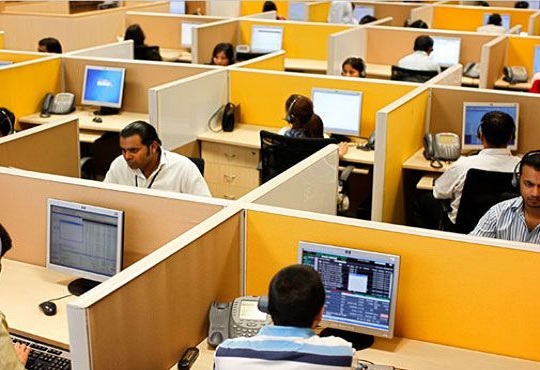Russia-India Business Forum Aims Expansion of IT sector
CIOTechOutlook Team | Thursday, 30 March 2023, 09:08 IST
 The St. Petersburg International Economic Forum's "Russia-India Business Forum: Strategic Partnership for Development and Growth" focused on India's most well-known industry, the IT sector, with a goal of increasing bilateral commerce to USD 50 billion this year.
The St. Petersburg International Economic Forum's "Russia-India Business Forum: Strategic Partnership for Development and Growth" focused on India's most well-known industry, the IT sector, with a goal of increasing bilateral commerce to USD 50 billion this year.
Rajiv Singh Thakur, additional secretary, Department for Promotion of Industry and Internal Trade, Ministry of Commerce and Industry, said at the Forum, "Current state of the Indian economy is performing well achieving 6-7 per cent. Indian economy is robust because of measures taken by the govt. In terms of investment, the latest data shows 85 billion FDI goes into the country. India has been a digital leader since millions of IT professionals are serving. This IT boom can be taken higher by Russia and India. Collaboration and cooperation between India and Russia are much needed, especially in the technical part given mobile payment success. We can learn from each other and take it forward."
The forum debate started on March 29 and will continue till March 30. The meeting's goals are to fortify commercial connections between India and Russia and to encourage Russian businesses to enter the Indian market.
The forum's primary areas of interest are IT, cybersecurity, technical sovereignty, smart cities, transportation and logistics, healthcare, and pharmaceuticals, with "Technological Alliances in the Larger Eurasia" serving as its focal point.
"We consider India not as a market, but strategic partner...If we combine your human potential, your economy is growing and our potential in making tech sovereignty and creating new technologies -- together we may be leaders in new tech setup," said Valentin Makarov, Russoft Association.
The USD 30 billion trade goal for 2025 was previously set. But because of India's oil imports from Russia, the amount was exceeded in 2022, and it's anticipated that it would reach USD 50 billion in 2023.
Sergey Cheryomin, Russian minister, head of the department for External Economic and International Relations of Moscow and chairman of the Board, Business Council for Cooperation with India, said, "We have a huge platform for cooperation. We have the same appreciation and understanding of political as well as economic bilateral relationships. A few years ago, we imagined a turnover of USD 25 billion with India. I am happy USD 30 billion turnovers and this year will have USD 50 billion turnovers. Banks are happy. We have a huge reserve in Indian local currency, which can be used. Indian investment is USD 5-6 billion in oil and gas."
Cheryomin added that Indian businesses might access Russian banks.
"We have very good prospects in cooperation between the Russian payment system Mir and the Indian payment system RuPay. We have to use both platforms for that, especially that can boost tourism between countries," Cheryomin added.
The minister also emphasised that banks in both nations should encourage more Rupee and Ruble trading.
"Our banks should be more active in establishing a relationship with each other and we've to promote trades in rupees and rubles as it creates a more stable platform for our companies," he said.
The RBI had set up an additional arrangement allowing exports and imports to be invoiced, paid, and settled in Indian rupees the previous year. Long-term, this method will aid in the internationalisation of the Indian rupee. If a currency is widely used as a means of trade around the globe, it is referred to as "international."
Russia's tech industry can provide India and Indian enterprises with solutions at a time when it is subject to sanctions. Participants at the Russia India Business Forum's inaugural session asserted that the two nations can forge a way forward together that is independent and unhindered by outside forces.
The first session, titled "Technological Alliances in the Larger Eurasia," focused heavily on the sanctions imposed by the West on Russia. The panellists in the discussion pointed out how a select group of businesses—primarily from the United States and China—dominate the high-tech sector and how these businesses are, in a sense, the distributors of digital colonialism.




